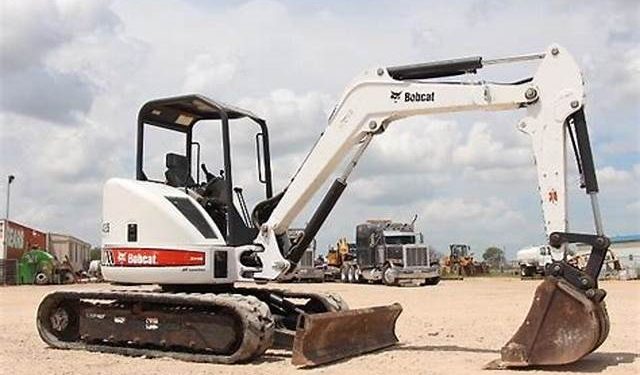Introduction
Mini excavators are increasingly popular in various industries like construction, landscaping, and home projects due to their compact size, versatility, and efficiency. They are perfect for jobs requiring precision in confined spaces and are more affordable to operate than full-sized excavators. Choosing the right mini excavator for your specific needs can improve project outcomes, enhance productivity, and reduce costs. This guide will walk you through everything you need to know before making your purchase decision.
What is a Mini Excavator?
A mini excavator is a small but powerful piece of machinery used for digging, trenching, and demolition. It consists of a boom, dipper, bucket, and cab. Mini excavators are ideal for smaller job sites with limited space, offering precision and flexibility.
Why Choose a Mini Excavator?
Mini excavators excel in tight spaces where larger machines can’t operate. They are cost-effective, fuel-efficient, and easy to transport. Ideal for urban construction, residential projects, and landscaping, their compact size ensures greater maneuverability without compromising on performance.
Types and Sizes of Mini Excavators
Mini excavators are categorized primarily by their operating weight, which typically ranges from 1 to 4 tons, though larger models exist. The size of the machine plays a crucial role in determining its suitability for specific tasks, maneuverability, and overall power.
- 1-2 Ton Mini Excavators: These are the smallest in the category and are often referred to as micro or compact excavators. Their light weight makes them ideal for delicate work, such as landscaping, backyard projects, or trenching in tight urban spaces. They can fit through narrow pathways and won’t cause significant damage to the ground, making them perfect for residential use. These machines are easier to transport on trailers, requiring less logistical effort for smaller contractors or homeowners.
- 2-3 Ton Mini Excavators: Offering more power and digging depth, this range is suited for small to medium-sized construction projects. They are still compact enough to be used in confined spaces but offer more versatility in handling tasks like minor demolition, trenching for utility lines, or grading small plots of land. Their increased weight provides better stability, making them more efficient in slightly tougher terrains.
- 3-4 Ton Mini Excavators: At the higher end of the mini excavator range, these models are geared toward more demanding jobs. They can handle tasks typically reserved for larger equipment, such as road construction, larger trenching projects, and excavation in moderately rough terrains. With their enhanced digging capacity and increased engine power, they offer a blend of strength and precision, making them ideal for contractors who need more capability without resorting to full-sized excavators.
- 4-6 Ton Models (Crossovers): While still considered compact, these are sometimes classified as crossovers between mini and full-size excavators. They can tackle heavy-duty projects like larger-scale construction, site preparation, and utility installation. Their increased power comes at the cost of reduced mobility in very tight areas, but they excel in situations where strength and reach are prioritized over compactness.
Kubota, a trusted name in construction and farming equipment, offers a variety of mini excavators designed to handle different types of projects. Kubota dealerships can give helpful advice on choosing the right machine, making sure you get the power and accuracy needed to complete your job efficiently.
Top Features to Consider When Buying
When selecting a mini excavator, consider the following factors to ensure you make the best choice:
- Size and weight: Ensure the machine is appropriate for the job and transportation needs. Models like the Kubota mini excavator are known for balancing size and power, making them versatile for various tasks.
- Digging depth and reach: Match the machine’s capabilities with your project’s requirements.
- Attachments: The ability to add tools like augers or hammers increases versatility.
- Operator comfort: A well-designed cab improves efficiency.
- Engine power and fuel efficiency: These factors directly impact operational costs. Kubota is well-regarded for its fuel-efficient engines.
Cost Considerations
Pricing varies based on factors like size, brand, and features. A new mini excavator can range from $20,000 to $90,000, while used models are more affordable. Additionally, you should factor in maintenance costs and the price of attachments. Leasing or financing options are available for businesses looking to manage upfront costs.
Conclusion
Mini excavators are indispensable for a wide range of projects due to their versatility, ease of use, and efficiency. Models like the Creworks micro excavators are excellent for compact, smaller-scale jobs where precision is key. Selecting the right model based on your specific needs and budget ensures that you maximize both productivity and return on investment. Researching the top brands and comparing features will guide you in making an informed decision, whether you need a micro or larger model.


![7 Best POS Software in the UK [2026 Edition]](https://todaynews.co.uk/wp-content/uploads/2026/02/7-Best-POS-Software-in-the-UK-2026-Edition-360x180.png)








































































